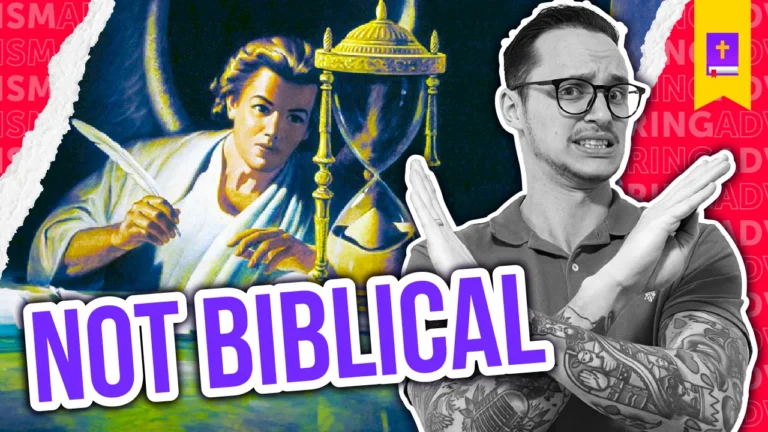Article written and provided by Richard K. Foster
A common argument made by some seeking to refute the Seventh-Day Adventist position on the seventh day sabbath will claim that Jesus broke the sabbath which shows it’s irrelevance or abolition.
One of the primary texts pointed to support this idea is John 5:18, where John says the Jews wanted to kill Jesus for breaking the Sabbath, calling God His own Father, and for making Himself equal with God. Another being Matthew 12:1-8, where Jesus permits his disciples to pick grain on the Sabbath and was accused of breaking it in doing so.
But the question we should ask is, what did John and Matthew mean when they used the language of Jesus “breaking the Sabbath”?
Though we understand that those using this argument are well meaning in their attempts to show the errors of Adventism, we believe this is a bad argument to use against Adventism. We believe it is a bad argument, because it is just plain bad theology to say that Jesus broke a law of God. Indeed, the first reaction many Christians and Adventists alike have when hearing this claim is “but wouldn’t that make Jesus a sinner?”
John 5:18
John chapter 5 starts off telling the story of the man who had been lame for 38 years (John 5:5). He had sought to get relief at the pool of Bethesda, but was unable to ever get to the water that were supposed to have healing properties (John 5:7). Jesus comes along one day and see’s the man, and asks if wants to be healed (John 5:6). After telling his basic story to Jesus, Jesus commands the man to take up his bed and walk (John 5:8). But there was just one problem for the Pharisees who were watching Jesus, He performed this healing and had this man carry his bed on the Sabbath (John 5:9-10). To the religious leaders who were ultra strict on their Sabbath prohibitions, this kind of activity was completely unacceptable.
Though the activity was unacceptable to the Jewish leaders, and a breach of their traditions, was the activity of Jesus on the Sabbath a breach of God’s law? In other words, when John recorded that Jesus was “breaking the Sabbath”, was He breaking the Sabbath in the eyes of God, or only in the eyes of man? According to Jesus’s own teaching, what He did was lawful.
Notice in Matthew 12:10-12 the question specifically put to Jesus is “is it lawful to heal on the Sabbath?” The conclusion of His answer is yes, “it is lawful to do good on the Sabbath.” So according to Jesus Himself, Him healing the man in John 5:18 was “lawful”. It was in complete harmony with the law of God concerning the Sabbath. So the healing of the man on the Sabbath in John 5, though a breach of Pharisaical law (the “tradition of the elders”—Mark 7:3), was not breaking God’s law. If our understanding of what constitutes a violation of one of God’s laws is in conflict with what Jesus taught, then perhaps we need reevaluate our understanding.
Matthew 12:1-8
When Jesus permitted His disciples to pick grain on the Sabbath, this didn’t go against God’s Law, but the oral traditions of the religious leadership.
Almost immediately afterward, on that same Sabbath day, Jesus entered their synagogue and healed a man with a withered hand. The religious leaders were eager to accuse Jesus of breaking the Sabbath again so they asked him, “Is it lawful to heal on the Sabbath?” (Matthew 12:9–14). Before healing the man, Jesus answers their question by asking which of them, if his sheep falls into a pit on the Sabbath, would not lift it out. Making the point that it is lawful to relieve the misery of a sheep on the Sabbath, how much more is it lawful to relieve the misery of a human being who is more valuable than a sheep?
In both cases, as well as in John 5:18, the scriptural principle that Jesus applies is God’s Word which says “I desire mercy and not sacrifice” (Matthew 12:7).
The fact of the matter is Jesus was born under the law (Galatians 4:4). And being under the law He fulfilled it perfectly, in every respect (Matthew 5:17). Indeed, if Jesus had violated God’s law He would have become a sinner (1 John 3:4), and been disqualified from being our sinless substitute (Exodus 12:5, 1 Peter 1:19).
We would challenge anyone reading this who believes that Jesus broke God’s Sabbath law to find any respected Christian orthodox scholar who believes this understanding is the correct interpretation of John 5:18 and/or Matthew 12:1-8. If no reputable scholar, either now or from history, believes such an interpretation of the text, then that is a serious indicator that that interpretation is probably incorrect. Certainly it ought to be grounds for humble reconsideration of your interpretation.
We don’t have to make arguments that require novel interpretations, or have seriously bad theological implications, in order to refute Adventism. There are numerous valid reasons why the Adventist Sabbath doctrine is unbiblical. Reasons such as failing to account for the new creation in Christ (2 Corinthians 5:17), inaugurated with His resurrection from the dead on the morning of the first day. Also the failure to properly exegete texts like Hebrews 4:1-11, Revelation 1:10, Acts 20:7, 1 Corinthians 16:1-2, Colossians 2:16, and numerous others. And most of all claiming that keeping the seventh day is salvational.
Let us avoid making exegetical and theological blunders similar to Adventism, in seeking to expose its errors. In doing so the case against Adventism will be much stronger.










